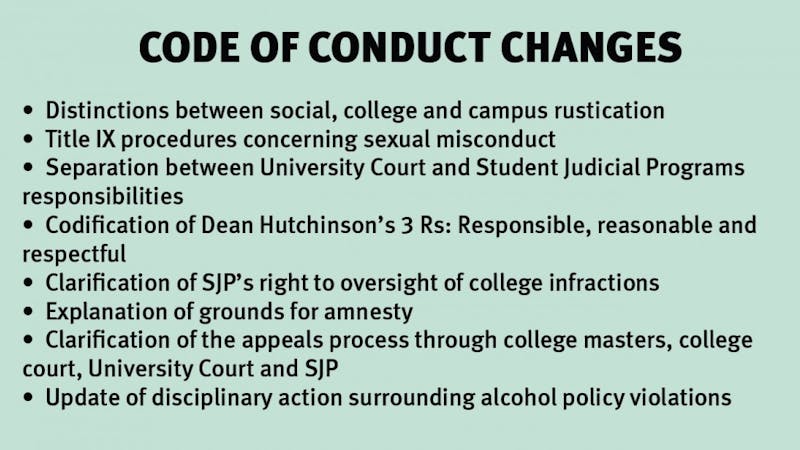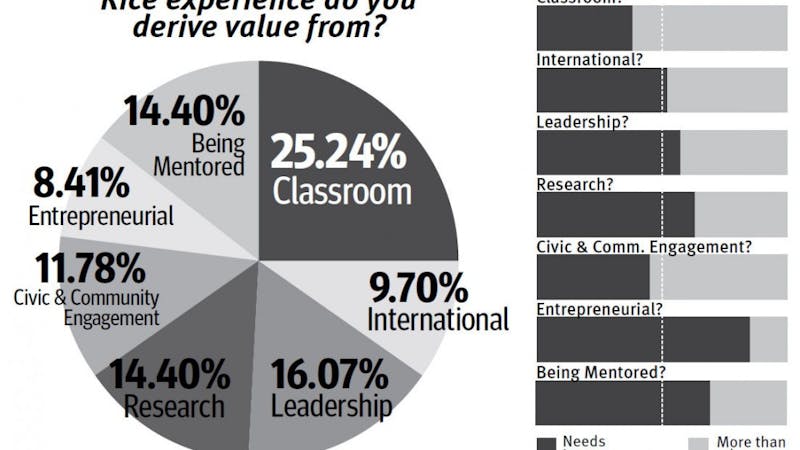Blanket tax crack team finalizes proposal for ballot
Jieya WenThresher StaffThe Blanket Tax Crack Team is currently collecting student signatures for a petition to bring the “pot of gold” blanket tax proposal to a vote, according to Nick Cornell, chair of the BTCT. The petition requires the signatures of 200 students, or 5 percent of the student body, to be included on the General Election ballot. The proposal requires a 20 percent referendum and two-thirds in favor to pass.Under the proposal, current blanket tax organizations would become subsidiary organizations. The estimated total blanket tax fee will be $85 per student, not including a $20 intramural fee. Subsidiary organizations would have their budgets approved by the standing committee and would not be allocated less than 75 percent of its budget from the previous year. Organizations could apply for further funds from the “pot of gold,” which would consist of unallocated funds. If funds are not used in their entirety, surplus above 125 percent would be returned to the pot of gold. “The biggest risk is we don’t have enough turnout at all,” Cornell, Sid Richardson College president, said. “The Crack Team will be visiting college government meetings to talk to students who want to know more or have questions about the system.”The BTCT presented details of the proposal at the SA meeting on Jan. 28, including the timeline of the blanket tax process, the composition of the blanket tax standing committee and ways to handle blanket tax surplus. “The standing committee is chaired by the SA treasurer, [who is a voting member,]” Cornell said. “The voting members [also include] two student members that are officers, treasurers or presidents of blanket tax organizations, two students in at large positions who are not officers of blanket tax organizations, a college president or senator and one staff advisor to a blanket tax organization. Two members of the committee are non-voting: a SA parliamentarian and the SA advisor, who advises on the process.”The standing committee would review subsidiary organizations’ budgets in April. Initiative funding applications will be available in late September for fall semesters and late February for spring semesters. On Jan. 21 and 22, the Crack Team held sessions to answer questions and gather feedback on the proposal. Cornell said students were interested in how new organizations could become a subsidiary organization under the new system. Under the current blanket tax system, organizations must petition through the General Election in order to gain more funding.“An organization can become a subsidiary organization without necessitating a funding increase,” Cornell, a senior, said. “Simultaneously, a funding increase can happen without adding any new organization or tying that funding increase to a specific organization. So, now the blanket tax funding serves student interests.”The Crack Team addressed how current blanket tax organizations would apply for more funding. Cornell said the standing committee can sign off on organizations’ requests for more money.“In the case that it’s a significant increase, they would meet with the standing committee to discuss [the budget],” Cornell said. “The committee’s job is to evaluate the proposed increase and how well it serves its missions and the mission of blanket tax, in line with Rice’s spending policies as well. So it’s not a competitive process.”Cornell said subsidiary organizations have priority on funds, and any other student organizations requiring funding for events can apply for funds from the remaining initiative fund. Julie Neisler, advisor of Rice Program Council, said RPC is excited about the new blanket tax proposal and is confident that RPC’s budget will receive full funding under the new blanket tax model. Neisler said RPC does not get enough funding under the current blanket tax process and that it is hard to convince students to vote for an increase in their blanket tax.According to Neisler, RPC requires extra funding beyond blanket tax in order to provide sufficient programming, but the proposed model will make funding requests easier for subsidiary organizations. “With the opportunity for additional funding, RPC would be able to bring back some programs that were cut, create new programs and not need to depend on Student Activities President’s Programming funding for late-night substance-free programming,” Neisler said.




